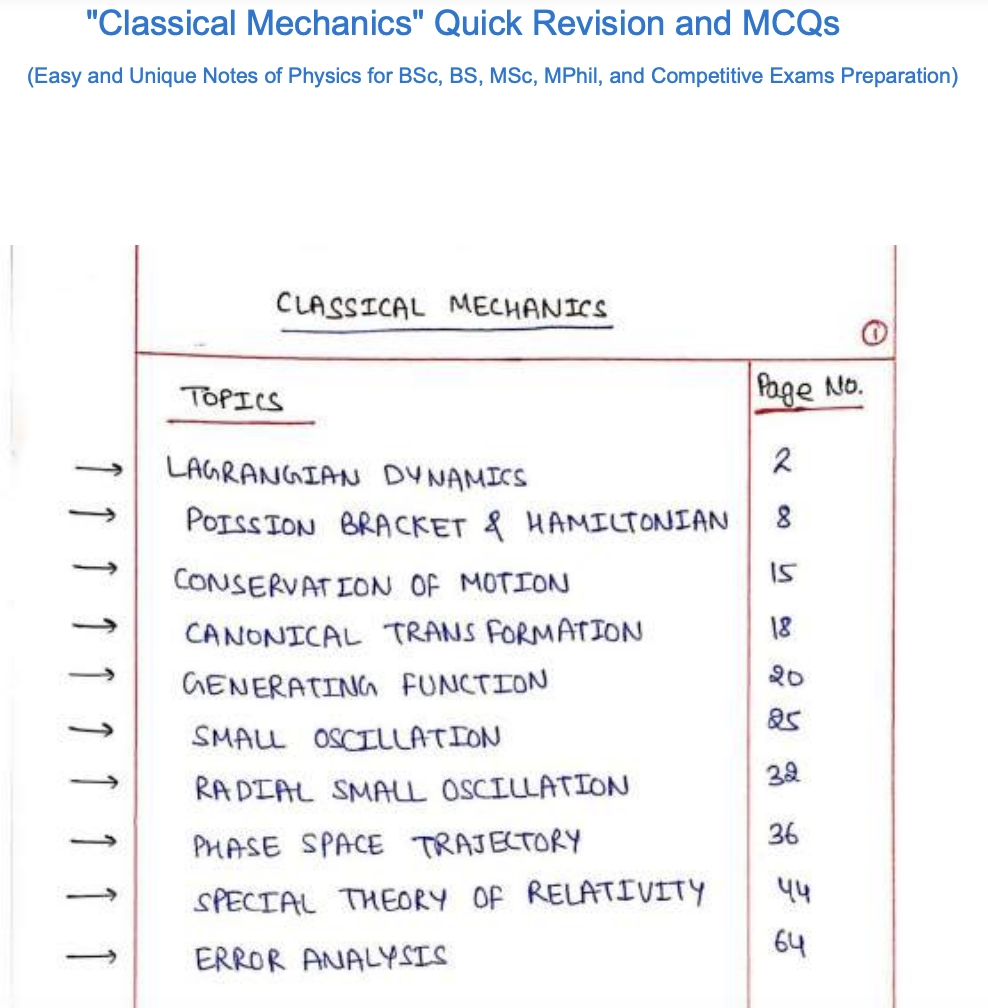Classical Mechanics in Physics
Summary:
Classical mechanics is a fundamental branch of physics that deals with the motion of macroscopic objects under the influence of forces. It encompasses the principles and laws formulated by Sir Isaac Newton and provides a framework for understanding the behaviour of objects ranging from projectiles to celestial bodies.
At its core, classical mechanics describes the motion of objects using concepts such as position, velocity, acceleration, and force. It employs Newton’s three laws of motion to analyze the relationship between forces acting on an object and the resulting motion. These laws establish the foundational principles of classical mechanics, including the law of inertia, the relationship between force and acceleration, and the principle of action and reaction.
Classical mechanics also involves the study of systems with multiple interacting objects. The concept of momentum, defined as the product of an object’s mass and velocity, plays a crucial role in analyzing collisions and the conservation of momentum. Furthermore, the study of energy is central to classical mechanics. It encompasses the concepts of kinetic energy, potential energy, and the principle of energy conservation, which states that energy cannot be created or destroyed but can only be converted from one form to another.
Classical mechanics has a wide range of applications. It provides the foundation for engineering disciplines such as civil engineering and mechanical engineering, enabling the design and analysis of structures, machines, and systems. The principles of classical mechanics also underpin technologies such as transportation systems, robotics, and aerospace engineering.
Additionally, classical mechanics has significant implications for understanding celestial mechanics and the motion of celestial bodies.
Excerpt:
Classical Mechanics in Physics
Classical mechanics forms the basis for understanding the motion of macroscopic objects and the forces that act upon them. It provides essential principles and laws that govern the behaviour of objects, from projectiles to celestial bodies. With applications in various engineering fields and a key role in celestial mechanics, classical mechanics continues to be a cornerstone of physics and engineering, shaping our understanding of the physical world.


Reviews